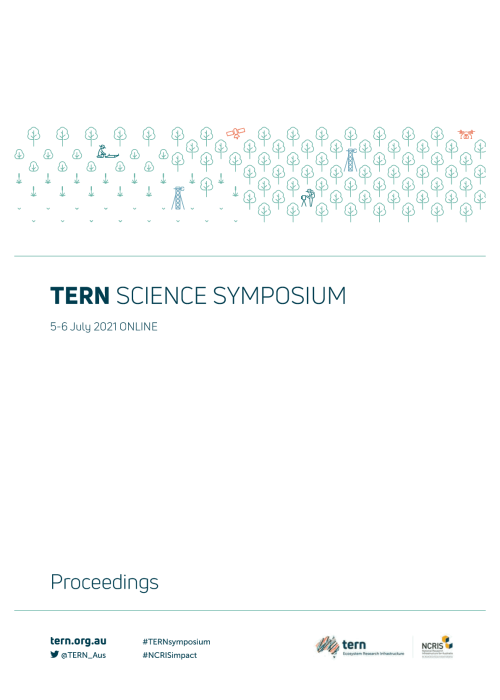The TERN Science Symposium 2021 was a forum for sharing both transdisciplinary and traditional approaches to ecosystem science research, technological development, data system innovation, collaboration and action.
This Symposium was held on July 5-6, 2021. The Proceedings can be downloaded below.
Symposium Themes & Proceedings
The TERN Science Symposium 2021 explored themes that have resonance and urgency for the planet:
Climate impact on ecosystems
Ecosystem biodiversity
Soils and ecosystem function
Data and models for ecosystem management and decision-making
The role of ecosystem data in Australia’s society

Download the 2021 Biennial Science Symposium Proceedings.
These are published under a Creative Commons Attribution Non Commercial (CC BY 4.0) Licence with permission of the University of Queensland (https://espace.library.uq.edu.au/view/UQ:6f329e5).
Symposium Abstracts
The Symposium program and a list of abstracts are available to download here.
Symposium Program & Presentations
Program Day One | Presentations |
Hugh Possingham (keynote) | |
Stefan Arndt | |
Alison O’Donnell | |
Jamie Cleverly | |
Anne Griebel | Tapping into the physiological responses to mistletoe infection during heat and drought stress |
Lucas Cernusak | |
Alfredo Huete | |
Tamara Potter | |
Thomas Van Niel | |
Jeff Powell | |
Emrys Leitch | Celebrating 10 Years of TERN Ecosystem Surveillance across Australia |
Irene Martin-Fores | Applying conservation reserve design strategies to define ecosystem monitoring priorities |
Arko Lucieer | |
Alison Hewitt | |
Katie Irvine | Extending biodiversity monitoring across space and time through citizen science |
Qiaoyun Xie | |
Juan Guerschman | |
Jamie Vleeshouwer | |
Matthew Stenson | |
Ashley Sommer | |
Siddeswara Guru | |
Greg Guerin | ausplotsR – rapid access to vegetation plot data across environments |
Julia Bignall | |
Mark Laws | |
Kimberley McCallum | The value of standardised field survey methods for researchers |
Bethany Cox |






